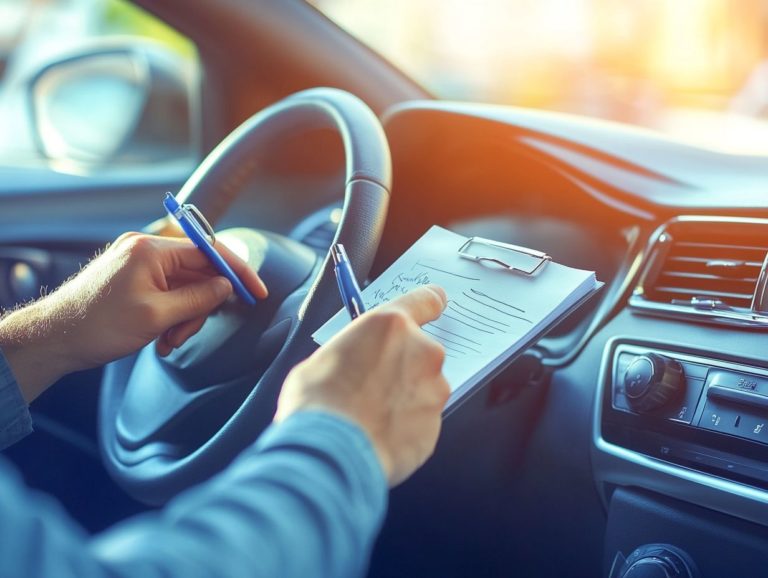Understanding New Car Trade-In Value
When upgrading your vehicle, understanding your car’s trade-in value is essential. This often-overlooked detail can greatly influence your purchasing power and the overall quality of the deal you secure.
This article delves into the significance of trade-in value, the factors that affect it such as age, mileage, and market trends and how to accurately assess your car’s worth.
You’ll discover effective negotiation strategies and alternative options to trading in, empowering you to make informed decisions for your next vehicle investment.
Contents
- Key Takeaways:
- What is Trade-In Value?
- Factors Affecting Trade-In Value
- How to Determine Your Car’s Trade-In Value
- Negotiating Your Trade-In Value
- Alternatives to Trading In Your Car
- Selling Privately or Donating
- Final Thoughts and Recommendations
- Frequently Asked Questions
- What is new car trade-in value?
- What factors affect new car trade-in value?
- How can I find out the trade-in value of my new car?
- Can I negotiate the trade-in value of my new car?
- Is it better to trade in my new car or sell it privately?
- What can I do to get a higher trade-in value for my new car?
Key Takeaways:
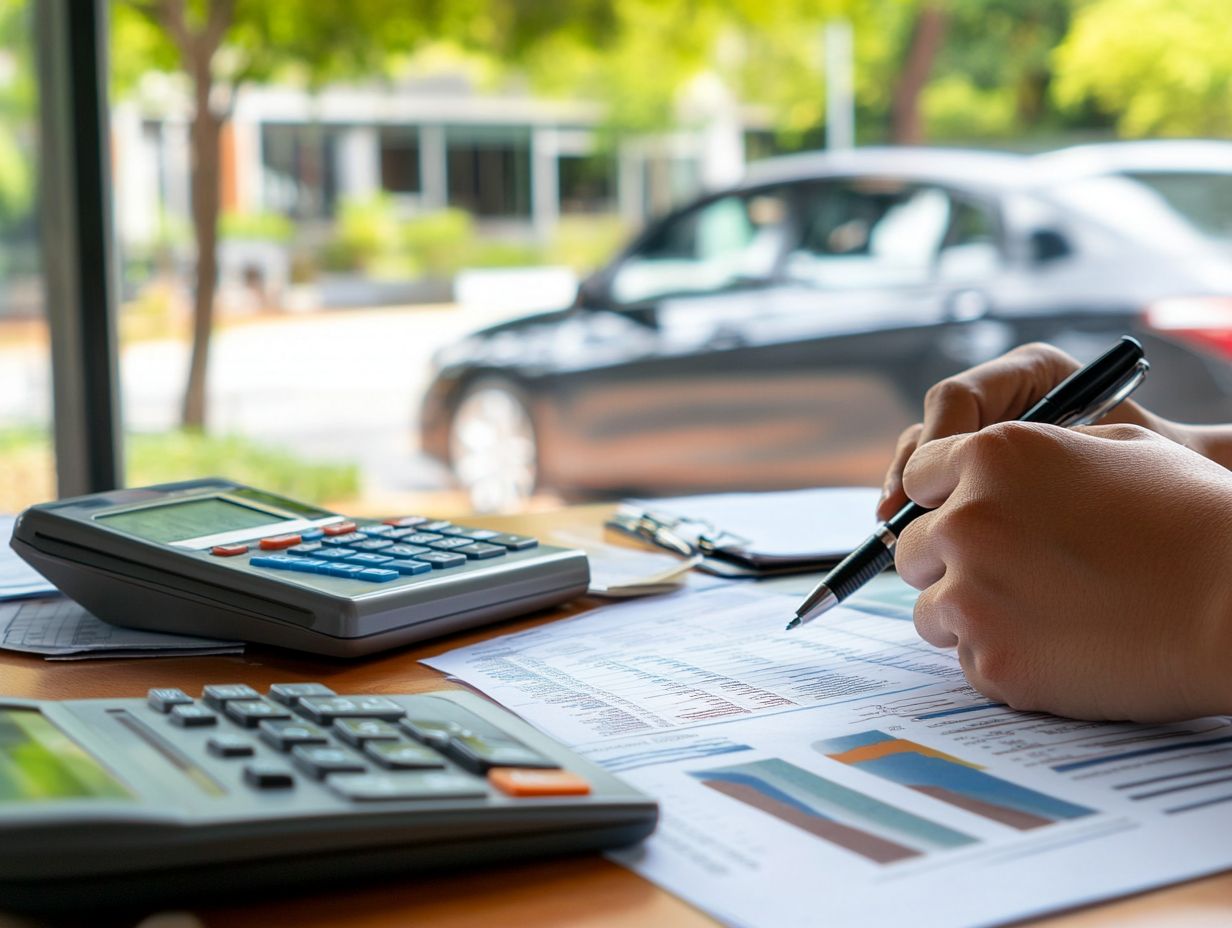
- Understand trade-in value to maximize your purchasing power when buying a new car.
- Age, mileage, condition, and market demand are key factors affecting trade-in value.
- Research well and consider alternatives like selling privately or donating to charity when negotiating.
What is Trade-In Value?
Trade-in value represents the amount a dealer will credit you for your old car when you decide to purchase a new vehicle. This part is vital in the car buying process, as it directly influences the overall financial transaction.
It also helps determine the loan amount you may require. By grasping the nuances of trade-in value, you can enter negotiations with a dealer more informed.
This knowledge gives you the power to make smart choices, enhancing your overall buying experience.
Factors Affecting Trade-In Value
Several factors can greatly impact the trade-in value of your car, such as its age, mileage, and overall condition. As your vehicle ages and gathers miles, it loses value over time, a process that s influenced by how well it has been maintained.
Market demand and seasonal trends are also important factors in determining the offer you might receive from a dealer for your trade-in.
Age and Mileage
The age and mileage of your vehicle are among the most significant factors that influence its trade-in value. Both parts play a crucial role in its depreciation over time.
As your vehicle ages, its market appeal generally diminishes, impacting its trade-in value. For example, a five-year-old car typically offers a considerably better trade-in value compared to a similar model that s eight years old, even if the latter looks pristine.
Mileage also plays a critical role in this equation. Vehicles with lower mileage usually considered under 60,000 miles often command higher offers than those exceeding 100,000 miles. This situation underscores a clear correlation between these mileage thresholds and what sellers can realistically expect.
This depreciation directly affects auto loan financing, as lenders frequently assess a vehicle’s value when determining loan amounts. If you re considering trading in an older vehicle with high mileage, you might face less favorable financing options.
Condition and Maintenance History
The overall condition of your vehicle and its maintenance history play a crucial role in determining its trade-in value. When a dealer assesses a trade-in, they meticulously examine both the exterior and interior for signs of wear and tear, while also reviewing the documented maintenance history.
A well-maintained vehicle, one that showcases evidence of routine servicing think oil changes, fluid checks, and timely repairs will typically receive a more favorable appraisal offer. On the flip side, a patchy maintenance record raises red flags, resulting in a less appealing assessment.
To strengthen your claims about the vehicle’s condition, it s wise to present any relevant paperwork, such as receipts for repairs, service records, and inspection certifications. These documents can effectively validate the vehicle’s upkeep and significantly enhance its trade-in appeal.
Market Demand and Seasonal Trends
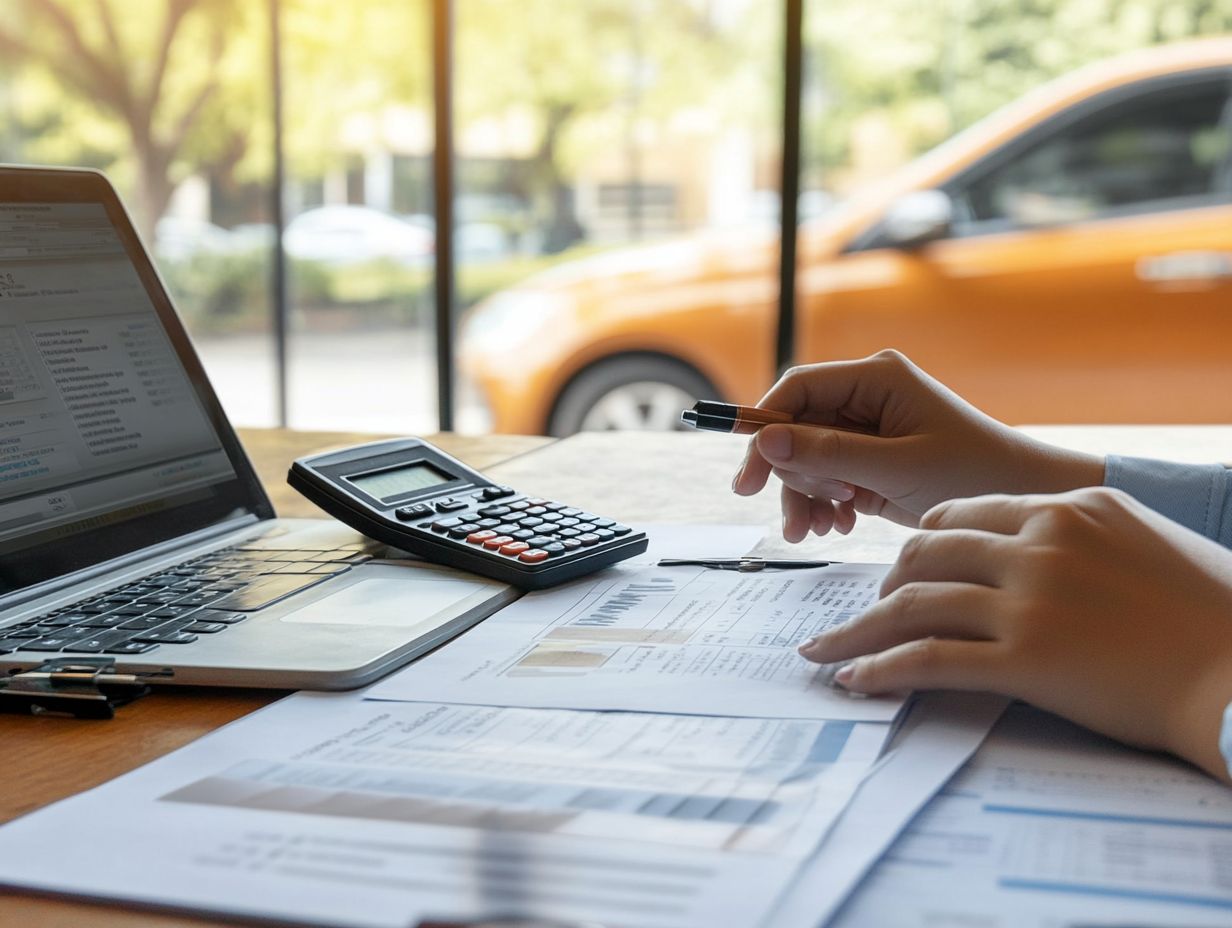
Market demand and seasonal trends significantly influence trade-in values for used cars. As seasons change, certain vehicles attract more buyers, raising their trade-in values.
For instance, convertibles see a spike in value during the warm spring and summer months. In contrast, all-wheel-drive vehicles increase in worth during the fall and winter when road conditions worsen.
To navigate this dynamic market effectively, monitor trends closely. Timing your trade-ins with peak demand periods is essential.
Prepping your vehicle is vital. Ensure it s in excellent condition and understand its market value to secure the best possible offer.
How to Determine Your Car’s Trade-In Value
Figuring out your car’s trade-in value can be straightforward with the right tools. This ensures you receive a fair offer from a dealer.
Methods and Tools for Evaluation
You have exciting tools at your fingertips to assess your car’s trade-in value. Reputable online resources like Kelley Blue Book and Edmunds provide valuable insights on vehicle pricing.
Start by gathering details about your vehicle its make, model, mileage, and condition. This information is crucial as it affects your trade-in value.
Comparing offers from multiple sources gives you a clearer understanding of your car’s worth. This knowledge empowers you during dealer negotiations, helping you secure a great deal.
Negotiating Your Trade-In Value
Negotiating your trade-in value is a vital step in your car-buying journey. It allows you to achieve the best offer from the dealer for your vehicle.
Tips for Getting the Best Deal
To get the best deal on your trade-in, consider several helpful tips. Thoroughly prepare your vehicle and research its current market value.
A clean car creates a great first impression. Address minor repairs to boost its appeal.
Understanding the dealer’s motivations is crucial. They want to resell your vehicle for profit, so present your car as a desirable option.
Gather data on comparable vehicles and their sale prices to strengthen your negotiation position. Highlight your car s standout features to maximize your cash offer.
Alternatives to Trading In Your Car
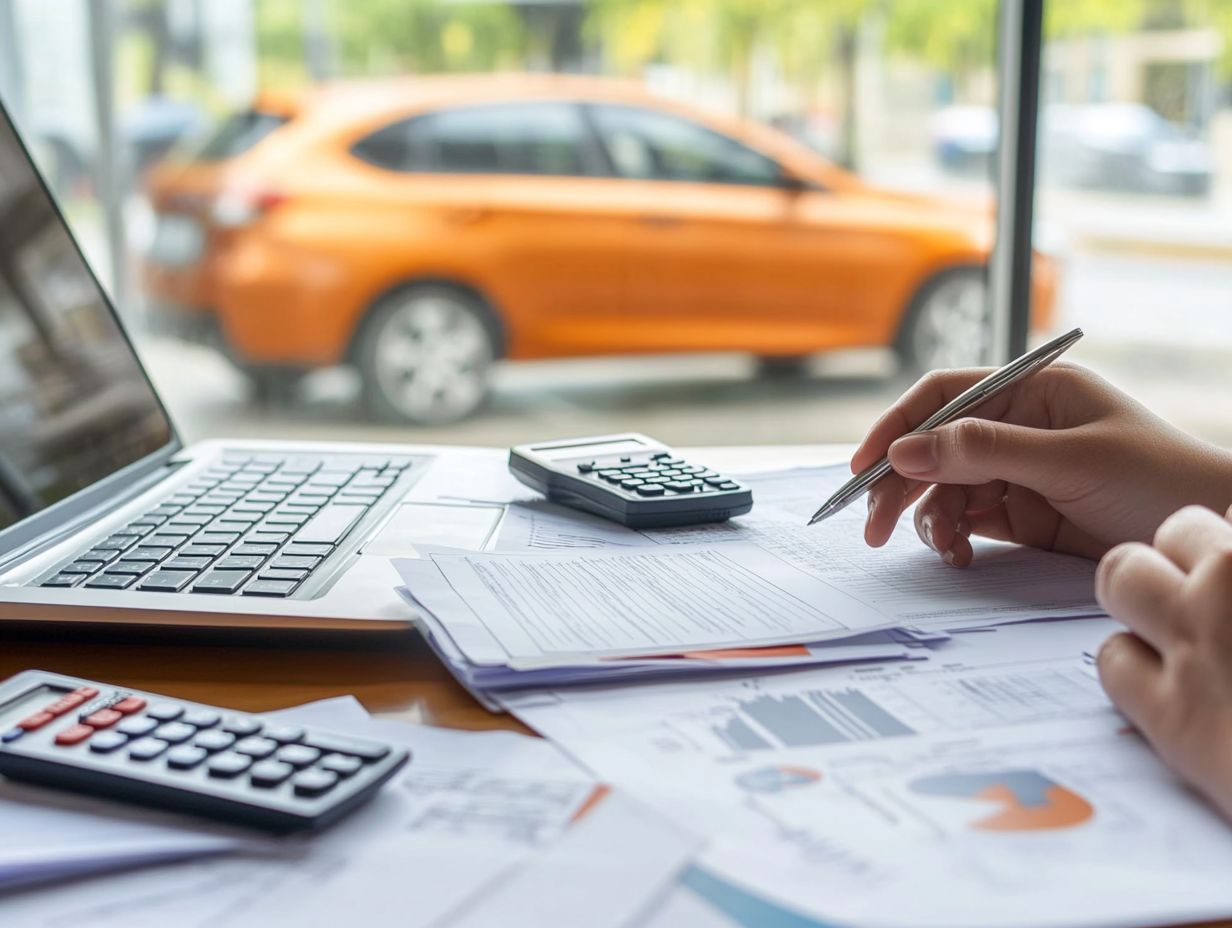
If trading in your car doesn t fit your financial goals, consider other options. Selling it privately could yield a higher return.
You might also think about donating it to a cause you care about.
Selling Privately or Donating
Selling your car privately or donating it can often lead to a better return than trading it in at a dealership.
By choosing to sell privately, you not only have the opportunity to secure a higher cash value but also the freedom to set a price based on your vehicle’s condition, demand, and current market trends.
On the flip side, donating your car can offer the benefit of tax deductions, allowing you to contribute to a meaningful cause.
Both options involve navigating essential paperwork, such as transferring the vehicle title correctly to avoid any future liabilities.
When selling, it’s smart to gather your maintenance records and provide proof of ownership. If you choose to donate, you ll likely need to fill out IRS forms, which are documents required for tax deductions, to substantiate your charitable contribution. Each option has its merits, making them suitable for various personal circumstances.
Final Thoughts and Recommendations
Understanding trade-in value and exploring your options can profoundly enhance your car ownership experience and financial circumstances.
By gaining insight into market trends and accurately valuing vehicles, you ll be in a stronger position to negotiate favorable deals with dealerships. Investing time in meticulous vehicle maintenance not only preserves its condition but could also boost your trade-in value significantly.
Have you thought about selling privately? It could maximize your returns and give you the power to make informed decisions that extend beyond simple transactions.
Ultimately, thorough research and proactive vehicle upkeep are crucial strategies for maximizing your trade-in opportunities and ensuring a rewarding car exchange experience.
Frequently Asked Questions
What is new car trade-in value?
New car trade-in value refers to the estimated value of a new car when it is traded in at a dealership towards the purchase of another vehicle, making it crucial to understand the trade-in process for new cars.
What factors affect new car trade-in value?
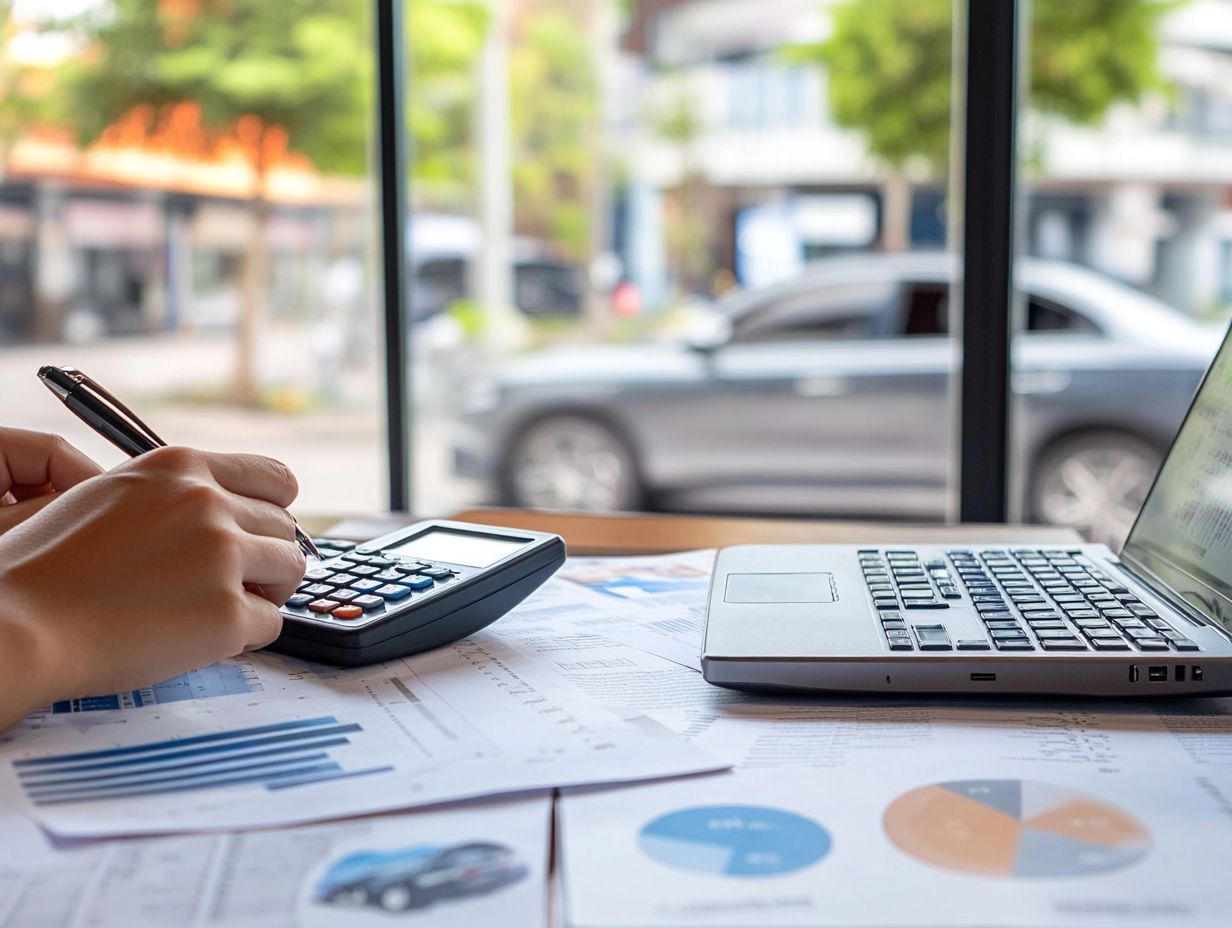
- The make and model of the car
- Its age
- Mileage
- Condition
- Current market demand
How can I find out the trade-in value of my new car?
You can use online tools such as Kelley Blue Book or Edmunds to get an estimate of your new car’s trade-in value. You can also consult with a few dealerships for their offers.
Can I negotiate the trade-in value of my new car?
Yes, you can negotiate the trade-in value of your new car. It’s important to do your research beforehand and have a target value in mind. Be prepared to walk away if the dealership’s offer is too low.
Is it better to trade in my new car or sell it privately?
It depends on your personal preferences and situation. Trading in your car at a dealership is convenient and can be a quicker process, but you may get a lower value. Selling it privately may take more time and effort, but you may get a higher price.
What can I do to get a higher trade-in value for my new car?
To get a higher trade-in value for your new car, you can take good care of it by regularly maintaining it and keeping it clean. You can also research the current market demand for your car and negotiate with the dealership for a better offer.
If you have more questions or need assistance, consider exploring your options further or consulting a professional to ensure you get the best value possible.





